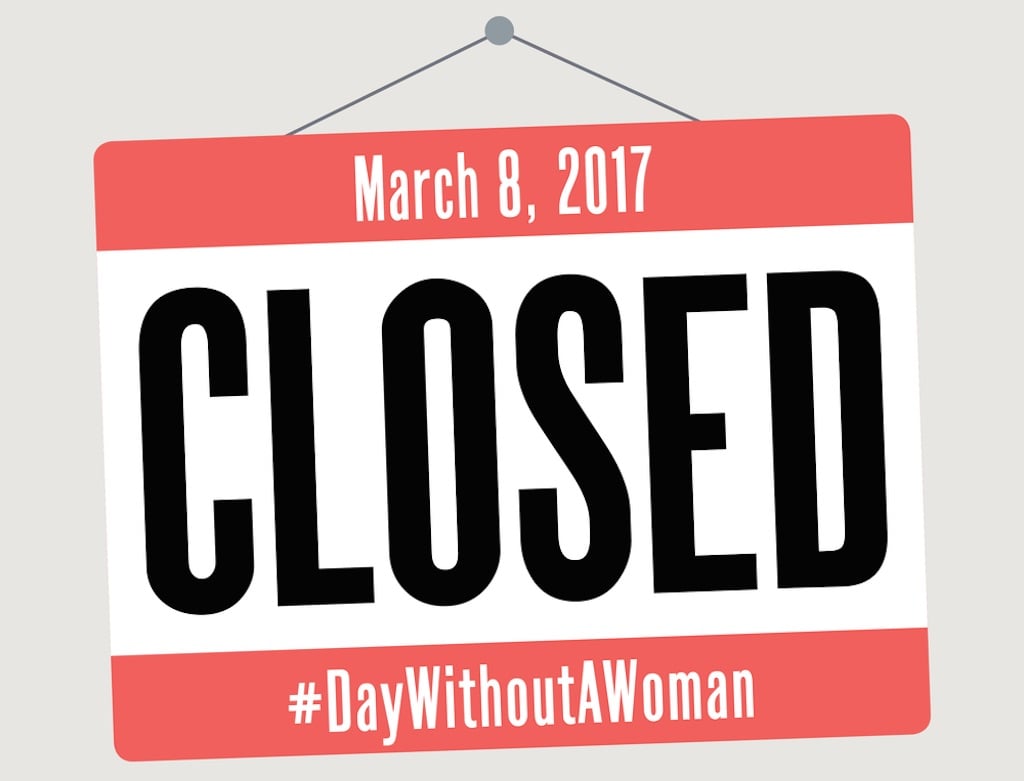On Wednesday, many women across the country will abstain from paid and unpaid labor for the A Day Without a Woman protest. The strike is shaping up to be much less popular than the Women’s March that birthed it: first, because taking a day off of all work is significantly harder than donating a Saturday. Second, it’s not exactly clear what the strike’s objectives are.
Let’s start with the first point: In all likelihood, many of the women who stay home Wednesday will be able to do so without jeopardizing their jobs or ability to pay living expenses. This is what activists call privilege, and you can read any number of articles that criticize A Day Without a Woman for that reason. Some people are opting to go to work, but plan to show support by wearing red or patronizing women-owned businesses.
But even if you can take the day off, your absence may be felt in ways you didn’t expect. In Alexandria, so many staffers took time off that the school district was forced to close. This means working parents are forced to find child care, which can be difficult and expensive. Statistics show child care workers are mostly female, yet tomorrow we need them to work more so Alexandria moms without sick leave or vacation benefits don’t lose their jobs. In effect, the burden of the strike gets pushed off to other women. (Alexandria still plans to provide breakfasts and lunches to students at some schools.) One group of local women say they created a Grassroots Solidarity Fund Tuesday night to support working-class strikers in the Washington area.
In the past, vulnerable people have braved possible firings and abuse in the past to create change. The 1965 California grape boycott led by Mexican and Filipino farm workers and the 1955 African-American Montgomery bus boycott are two examples. More recently in 2016, Polish women boycotted work on “Black Monday” to protest an abortion ban. However, these protests had a narrow focus and specific demands, and supporters could measure success or failure accordingly. The recent “Day Without Immigrants” was a direct response to the changes Donald Trump wants to make to immigration policy. Meanwhile, this Day Without a Woman strike aims to…show how necessary women are? To express our disgruntlement at…what, precisely?
This brings us to the second sticking point: In their announcement for A Day Without a Woman, the Women’s March organizers say that “Social activism is not a privilege. It is a necessity born out of a moral imperative and an imminent threat.” Sure, but they never define what form that threat takes. The goal of keeping gender issues in the spotlight is a noble one, but for a lot of people, it’s too vague a point to risk their livelihood over. Gender roles, racism, immigration: They’ve all taken on a new sense of urgency under Trump. But sacrificing for generalized expressions of the importance of women invites activist fatigue.
None of this is to say that the strike shouldn’t happen; I’m a firm believer in not letting the perfect get in the way of the good so long as we continually strive to do better. To co-opt Jesus’ point, “to whom much is given, much is required.”
Maybe this is exactly what our well-situated sisters are in the place to do tomorrow: use their comparatively better-off position to help prove the ill-defined but nonetheless important point that women matter. That’s a statement many women would love to be able to afford to make.



















